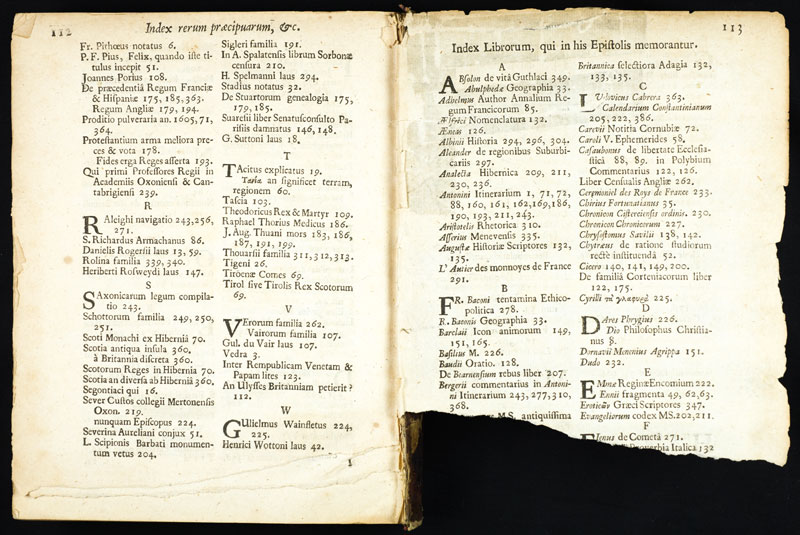Collecting Old Books on a Budget
Be Forgiving About Condition
Collectors in every field know that condition plays an important role in the price of an item, and that pieces in less-than-fine condition can be difficult to sell or trade, since most collectors will reject them. Since so few collectors or institutions want these books, incomplete copies of common works are often priced significantly below their perfect counterparts. If you can regard positively what is still present in a volume, rather than fretting over what has gone missing over the years, your range of potential acquisitions may grow significantly.
Assemble Sets from Odd Volumes
The Internet has given collectors a better-than-ever chance of assembling sets over time by buying individual volumes that have become separated from their companions, and putting together their own sets, mismatched though they might be. While even small parts of an important multi-volume set might still be expensive, lesser works can sometimes be obtained very inexpensively this way, assuming, of course, that the missing volumes actually do appear eventually.
Look for Later Editions
First editions usually sell for a great deal more than do subsequent editions, and these second or later editions can be quite rewarding to read and to collect. There were often a great many textual and other changes made in later editions, and since many of these changes have not yet been recorded by bibliographers, there is always the potential for making interesting discoveries.
Less Is More: Buy Few Books Rather than Many
If none of the suggestions above appeal to you, and you still want to buy fine copies of books by popular authors or those in sought-after fields, then you may want to consider making each book purchase a rare and special occasion. Collectors’ manuals sometimes advise beginning collectors to make their initial purchases in their newly-chosen area the most expensive and difficult-to-find books that they can afford, based on the idea that these are the books that are likeliest to rise to unaffordable levels. This advice is usually hard to follow, because book collectors enjoy acquiring books, and starting with an expensive one means that you may not be able to buy another for quite some time. But if you are able to collect this way, and you spend nearly all your annual book budget on a single item, eventually you’ll have a small but wonderful library, with nothing to explain or apologize for if another collector happens to see your books.
But if you don’t think that this approach can work for you, and you still want to be surrounded by the books that you’ve read about in the memoirs of famous collectors and booksellers, then I can enthusiastically recommend the profession of special collections librarianship.
Further Reading and Browsing
I’ve written in earlier columns about some of these aspects of collecting, including books in other languages (Spring 2011), incomplete books (Spring 2014), and later editions (Autumn 2011). But whatever collecting approach you take, one of the most important and rewarding things that you can do is to read as much as you can about whatever you’re collecting. Coin collectors are frequently advised to “buy the book before you buy the coin,” and this advice makes good sense for book collectors as well. If you’re going to collect books intelligently, you need to learn as much as you can about the books that you intend to buy, and this mean buying, and reading, reference books before you buy the books that you want to collect. Learning about what you’re collecting allows you to see attributes and connections that aren’t obvious to others, and you’ll be able to add books to your collection before other collectors realize how important these books really are. Bibliographies, catalogues, and other reference works are also among the biggest bargains available in today’s book market, and many of these books sell for far less than they did twenty-five years ago. And you just might become so interested in them that they form a collecting field of their own.








